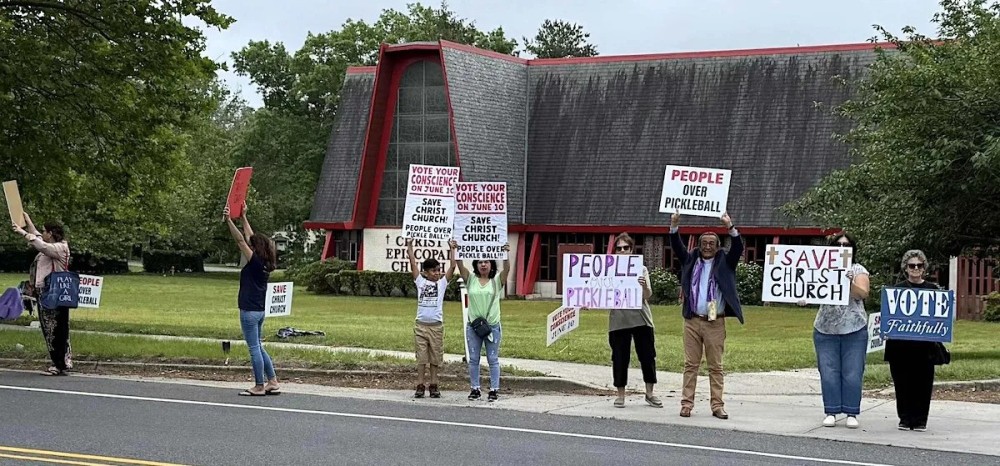Zoning board rejects Episcopal church's request to operate a homeless shelter

Members of Christ Episcopal Church in Toms River, New Jersey, urge drivers to help the parish fight the mayor's planned land grab. (Photo courtesy of Denise Henry)
Christ Episcopal Church in Toms River, New Jersey, is considering its options after the town Zoning Board of Adjustment refused June 12 the parish’s request for a variance, which would allow for a 17-bed overnight shelter on its campus.
The parish and the diocese are considering whether to appeal the 5-2 decision to the Ocean County Superior Court. The church’s attorney, Harvey York, predicted during his closing argument to the board that a no vote would prompt an appeal.
Lisa Hoffman, Christ Church’s rector, said in an interview that she is “not surprised but very disappointed” by the board’s decision. “We will continue to do whatever we can to assist and support the homeless in our community,” she said.




